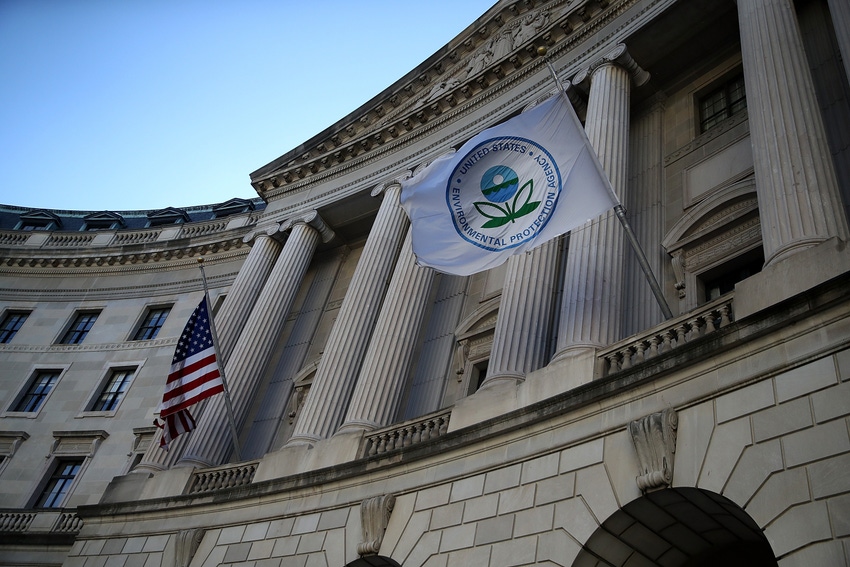
The Environmental Protection Agency held a public hearing Friday on its proposal to extend compliance deadlines for renewable volume obligations for 2019 through 2021. Biofuel groups continue to call for the EPA to stop the delays and release the renewable volume obligations as required under the Renewable Fuels Standard.
Also speaking on Friday, Secretary of Agriculture Tom Vilsack told ag reporters he anticipates actions from the Biden administration on biofuels to create more stability than the past administration. Vilsack says he’s worked very closely with EPA Administrator Michael Regan in reinforcing the importance of EPA to take actions regarding the RFS to provide much desired stability.
“The administrator has indicated that he is not going to be granting the waivers in quite the same way that the Trump administration granted them that created instability in the program,” Vilsack says of the nearly 80 waiver requests granted during the Trump administration that undercut the RVOs established during those years.
On November 18, EPA announced a proposal to extend the RVO compliance deadlines for 2019 and 2020, as well as for the yet to be proposed 2021 RVO. EPA proposed to establish general timeframes for the extended compliance deadlines without giving specific dates. In addition, EPA proposed to change how future compliance deadlines are determined. The 2019 RVO compliance deadline for small refineries was set for November 30, 2021, and the 2020 RVO compliance deadline for all obligated parties is currently set for January 31, 2022.
EPA argues that the compliance deadline extensions are necessary because dozens of 2019 and 2020 small refinery exemption petitions have not yet been decided, and proposed standards for 2021 have not yet been published.
“EPA has had ample time to decide pending 2019 and 2020 SRE petitions following the Supreme Court’s June 2021 decision in the HollyFrontier v. RFA case, which left intact two important holdings from the Tenth Circuit Court’s January 2020 decision in the RFA v. EPA case,” explains Renewable Fuels Association President and CEO Geoff Cooper in prepared testimony. “We strongly encourage EPA to immediately decide the remaining 2019 and 2020 SRE petitions in a manner consistent with the unappealed holdings of the Tenth Circuit decision. And immediately upon deciding those petitions, EPA should require compliance with the final 2019 and 2020 standards.”
Growth Energy Senior Vice President of Regulatory Affairs Chris Bliley testified that instead of delaying the RVOs, EPA should take immediate steps to restore integrity to the RFS, restore lost biofuel demand, “and remove remaining hurdles to E15 and higher biofuel blends.”
“The intent of the RFS is to blend more biofuels into our nation’s transportation fuel supply. Period,” says Bliley. “It is not meant to reward oil companies for suing to prevent higher blends and then demand that the agency further delay compliance.”
American Coalition for Ethanol Senior Vice President Ron Lamberty testified that if EPA had finalized the 2021 RVOs on time last November and predicted gas volumes would return to 2019 levels, the 2021 percentage would have assured refiners their renewable fuel requirements would again fall or rise as petroleum volumes remained flat or grew.
“Instead, the reason EPA has to propose delaying compliance reporting and attest engagements for 2021 and 2022 is EPA’s own failure to establish annual Renewable Volume Obligations when they are supposed to be established,” Lamberty’s testimony reads.
Vilsack promises RFS stability
Vilsack says during the Trump administration, when the past RVO levels were announced, the small refinery waivers granted “basically undercut” the amounts that were set in the volume mandates.
Vilsack says he anticipates in the “very near future” that EPA will announce the RVO levels, and at the same time also respond to the outstanding waiver requires in a way that maintains the stability of the RFS program.
“We look forward to when those announcements are made to also be able to provide more details on the distribution of $700 million of assistance and help that we’ve already identified and earmarked for biofuels,” Vilsack says of the COVID relief funding awaiting final Office of Management and Budget approval that was allocated by Congress at the end of 2020 and part of USDA’s additional pandemic assistance in 2021.
Vilsack also announced Friday just over $3 million in funding through the Higher Blends Infrastructure Incentive Program to applicants over nine states to be able to access higher blends of biofuels. In addition, this administration is going to invest $4.3 billion in a series of grants and loans to support the creation of drop-in biofuels for the aviation industry.
“This is an administration that understands that we need to continue to look for innovative solutions to climate and innovative solutions to lower cost fuels,” Vilsack says.
About the Author(s)
You May Also Like






